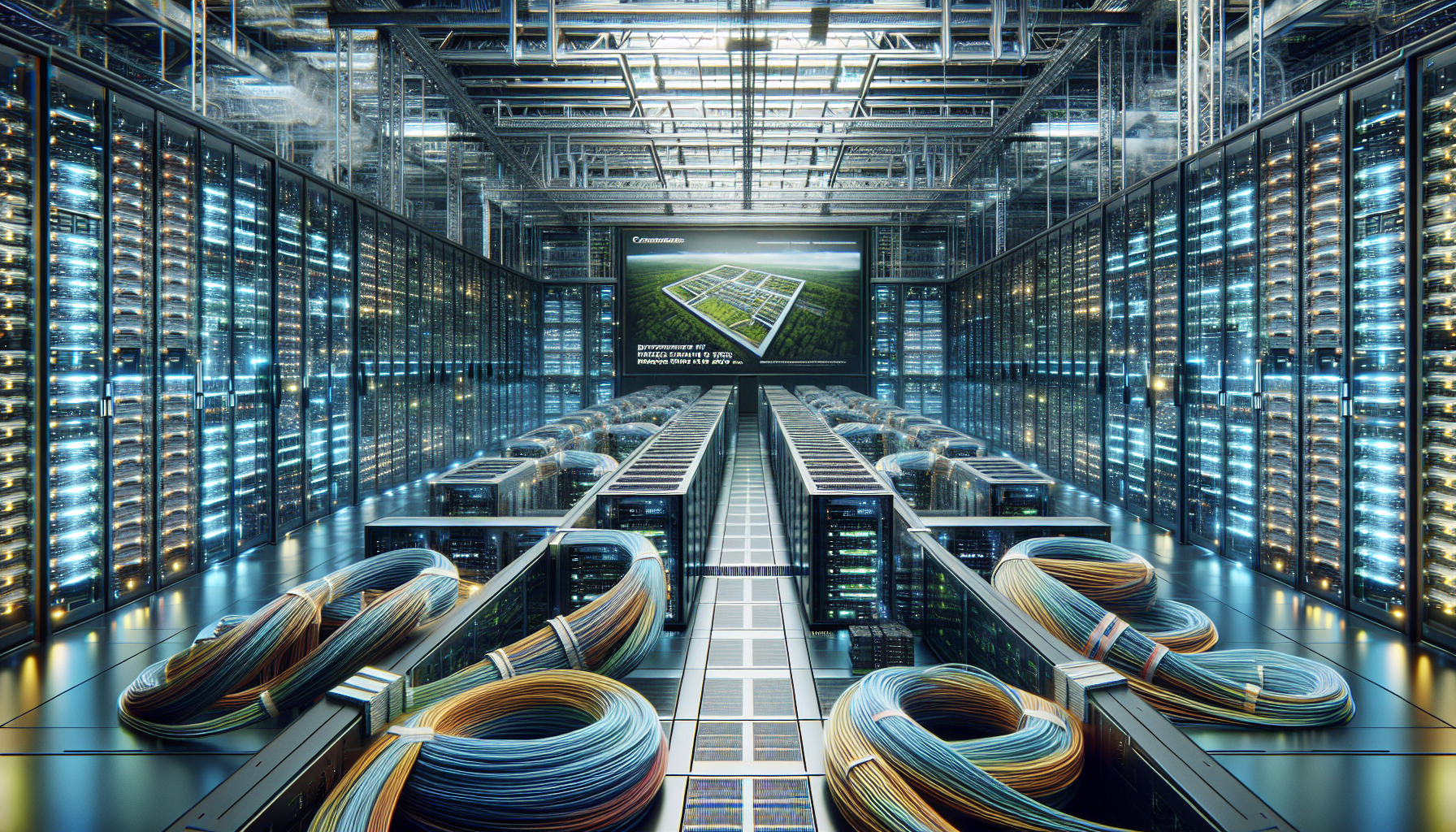
The Future of Artificial Intelligence: Microsoft’s Vision for 2025
Artificial intelligence (AI) has transitioned from a distant idea to a pivotal element reshaping various fields, economies, and communities. Microsoft, a key player within the AI landscape, has outlined its forward-looking vision for AI growth by the year 2025. By committing $80 billion to AI-enhanced data centers, emphasizing workforce education, and advocating for strategic government assistance, Microsoft aims to cement its role as a leader in AI advancement. Let’s delve into the specifics of this vision and what it signifies for the future of technology and society.
Microsoft’s $80 Billion Commitment to AI Data Centers
Establishing the AI Infrastructure
Microsoft has pledged an $80 billion investment in AI-driven data centers by 2025. These facilities will underpin the training and deployment of sophisticated AI models and support cloud-based services. A significant portion of this funding will be allocated to constructing data centers within the United States, demonstrating Microsoft’s dedication to fostering domestic innovation.
Data centers are vital for developing AI as they offer the computational capacity required to analyze vast datasets and train machine learning algorithms. This framework will empower Microsoft to expand its AI functionalities, enhance cloud services, and aid sectors from healthcare to finance.
The Importance of Collaborations in AI Advancement
Microsoft has stressed that the advancements made in AI thus far are a result of collaborations and substantial infrastructure investments. By partnering with other technology firms, research entities, and governmental bodies, Microsoft seeks to expedite AI innovation. This cooperative strategy is critical for addressing the technical and ethical dilemmas linked to AI.
Government Involvement in AI Progression
Advocating for Enhanced Funding
Microsoft is calling on the U.S. government to boost its backing for AI research and development. The company specifically recommends increased funding for the National Science Foundation and U.S. universities. Such investments would enable pioneering research and cultivate a new generation of AI professionals.
Support from the government is essential for preserving the United States’ competitive advantage in AI. With nations like China making substantial investments in AI, the U.S. must implement a solid strategy to uphold its global leadership in this arena.
Navigating the Balance Between Innovation and Employment Displacement
Microsoft recognizes that AI will transform the economy and may lead to some job losses. However, the company is hopeful that AI will generate new opportunities that surpass these challenges. According to Microsoft, workforce development is crucial.
By providing workers with the skills to utilize AI as a tool, akin to how they currently engage with smartphones and laptops, Microsoft believes that the workforce can adapt to the evolving environment. This will necessitate collaboration among tech companies, educational bodies, and policymakers.
Encouraging American AI Exports
The Competition Between the U.S. and China
Microsoft has underscored the necessity of promoting American AI exports to maintain a competitive stance in the global marketplace. The company anticipates a contest between the U.S. and China to disseminate AI technologies internationally. To succeed in this competition, the U.S. must act as a “fast first mover,” capitalizing on its technological progress to assert leadership in the global AI sector.
This rivalry highlights the strategic relevance of AI not only as a technological resource but also as a means of geopolitical leverage. By focusing on AI exports, the U.S. can enhance its economic and diplomatic standing worldwide.
Conclusion
Microsoft’s roadmap for AI evolution by 2025 is both ambitious and multifaceted. With an $80 billion investment in AI-driven data centers, an emphasis on workforce education, and a plea for strategic governmental backing, the company is setting the stage for a future where AI propels economic growth and social advancement. Nevertheless, realizing this vision demands collaboration across tech firms, governments, and educational institutions. As the race for AI supremacy intensifies, the stakes are heightening.
Q&A: Essential Questions Regarding Microsoft’s AI Vision
1. Why is Microsoft investing $80 billion in AI data centers?
Microsoft is channeling funds into AI data centers to supply the computational resources necessary for training and deploying sophisticated AI models. These facilities will also bolster cloud-based solutions and enable sectors to harness AI for innovation.
2. How will AI affect the job market?
AI will modify the job market by automating specific functions, potentially leading to job losses. Nonetheless, Microsoft is confident that AI will open up new opportunities that will outweigh these challenges. Workforce training will be vital for helping individuals adapt to this evolving reality.
3. Why is government backing significant for AI development?
Government support is vital for financing research, fostering innovation, and sustaining the U.S.’s competitive edge in AI. Additional investments for organizations like the National Science Foundation and universities can catalyze groundbreaking developments in this field.
4. What is the importance of promoting American AI exports?
Encouraging American AI exports is crucial for sustaining a competitive advantage in the global AI arena. It allows the U.S. to claim leadership in AI technologies and bolster its economic and geopolitical influence.
5. How does Microsoft plan to tackle the ethical challenges of AI?
While Microsoft’s vision centers on infrastructure and innovation, the company has stressed the necessity of partnerships and collaboration to address ethical concerns. This encompasses collaboration with governments, researchers, and other stakeholders to ensure responsible AI growth.
6. How can workers prepare for an AI-driven economy?
Workers can get ready by gaining skills that enable the effective use of AI in their jobs. This may involve training sessions, online courses, and partnerships with educational institutions to cultivate AI literacy.
7. What role do data centers play in AI development?
Data centers furnish the computational power crucial for analyzing large datasets and training machine learning models. They are fundamental for amplifying AI skills and supporting applications across diverse industries.
For further insights regarding AI and its implications for technology, visit Lonelybrand.